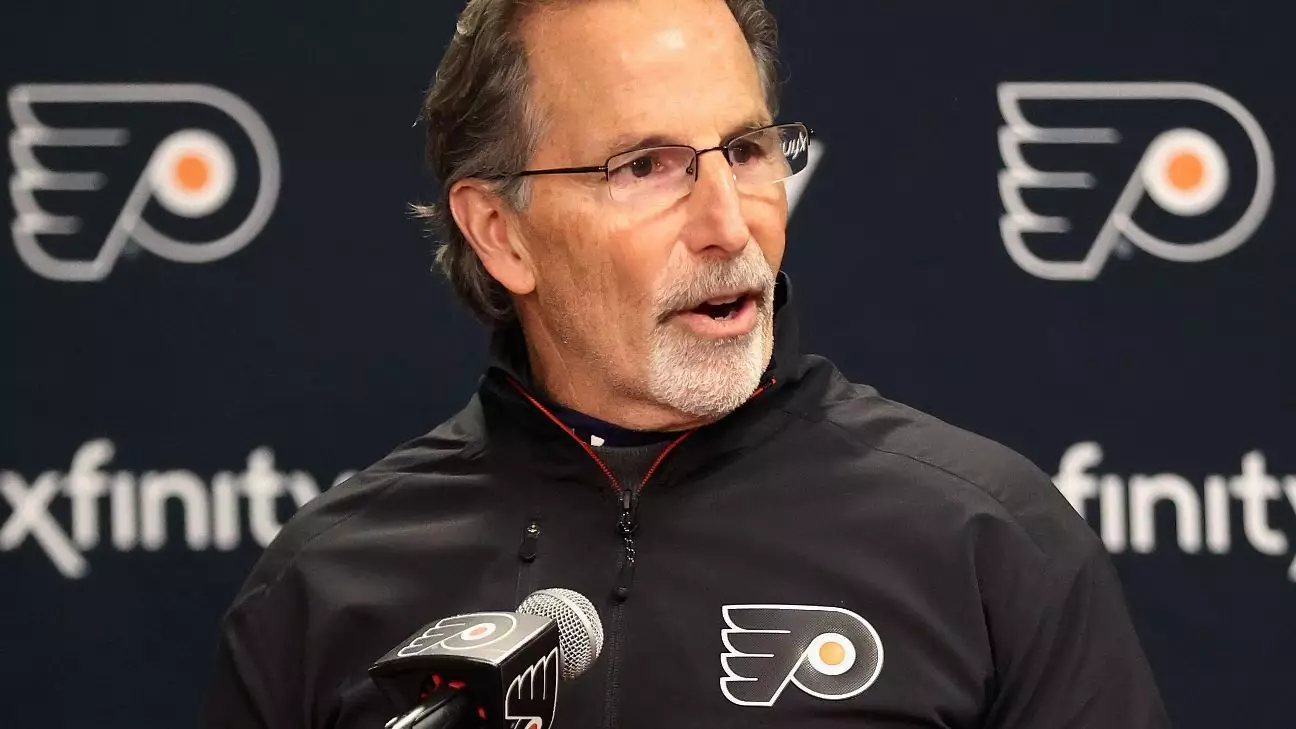The Philadelphia Flyers have reached a pivotal moment in their storied history as they fired head coach John Tortorella, signaling an urgent need for transformative change within the organization. Under Tortorella’s leadership, the Flyers have faltered, spiraling toward their fifth consecutive season without playoff contention. The announcement from general manager Daniel Briere on Thursday marks not just a coaching change but a significant shift in the franchise’s approach to reclaiming its status in the NHL.
With a disheartening record of 28 wins and 36 losses, the Flyers find themselves at the bottom of the Metropolitan Division, a position that, while dismaying, was not entirely unexpected given the team’s trajectory over the years. The dismissal of Tortorella comes amid a dismal six-game losing streak, reflecting the pervasive challenges that have crippled the franchise despite high expectations at the start of the season. Briere’s statement underscores the shifting priorities as he emphasizes the need to move forward in the rebuilding process.
The Role of Leadership in Team Dynamics
During Tortorella’s three-year tenure, he compiled a record of 97 wins, 107 losses, and 33 overtime losses, leading the team through a transitional phase. While his resume is undeniably impressive, boasting a Stanley Cup victory with the Tampa Bay Lightning in 2004, the current state of the Flyers reflects the dichotomy inherent in professional sports: past success does not guarantee future victories. Briere’s decision was marked by a bittersweet acknowledgment of Tortorella’s contributions to instilling a sense of identity and standard that had been lacking. Yet, the realities of modern hockey demand adaptability and innovation, qualities that seem to have eluded Tortorella this season.
One cannot overlook the nuances of coaching in the NHL today, especially when you consider how Tortorella’s traditional methods faced scrutiny this year. Notably, his decision to healthy scratch promising rookie Matvei Michkov raised eyebrows, as fans and analysts questioned whether a tough-love approach was appropriate for a player expected to be the cornerstone of the franchise’s future. This scrutiny has further fueled the narrative that the team’s direction needs a radical shift rather than incremental changes.
The Tide of Change: A New Interim Coach
With Tortorella’s dismissal, the Flyers have appointed associate coach Brad Shaw as the interim head coach. Shaw’s previous experience—including his stint as head coach of the New York Islanders and serving under Tortorella—positions him uniquely for this task. However, the question remains: will Shaw’s philosophy resonate with a team desperately needing not just a tactical revamp but also morale enhancement? The pressure will be on Shaw from day one, particularly as he leads the Flyers into their next matchup against the Montreal Canadiens.
The franchise has faced its share of upheavals, cycling through six head coaches in just a decade. This instability hints at deeper, systemic issues within the club that extend beyond coaching. Briere, loaded with the responsibility of reshaping the organization, is motivated by the urgency to foster a winning culture, one that perhaps has not been present since the Flyers’ last Cup victory in 1975. His willingness to embrace the term “rebuild,” once a taboo in the organization, signals a refreshing openness to transparency about the team’s current situation.
Catalysts for a Brighter Future
The Flyers’ long-term vision rests not only on effective coaching but also on the nurturing of young talent to lead the team into a new era. The acknowledgment of a rebuild dovetails with the emergence of promising prospects, indicating a proactive response to years of poor drafting and insufficient player development. At the forefront is Michkov, with his impressive scoring record, who starkly contrasts the veteran approach that has characterized the Flyers for several years. For Briere and Shaw, the challenge lies in balancing the developmental needs of youth while instilling a winning mentality throughout the roster.
This juncture in Flyers history offers a chance to reflect on the broader implications of leadership, development, and the transformational power of strategic decisions. With Briere’s determination to revamp the Flyers, and Shaw navigating the uncertain waters ahead, the organization stands at a crossroads filled with both challenges and potential. As fans of the franchise eagerly anticipate the fresh starts and new philosophies that will shape their team’s future, the hope is that this change represents not just a moment of reckoning but a spark to reignite the fire of a proud franchise.

